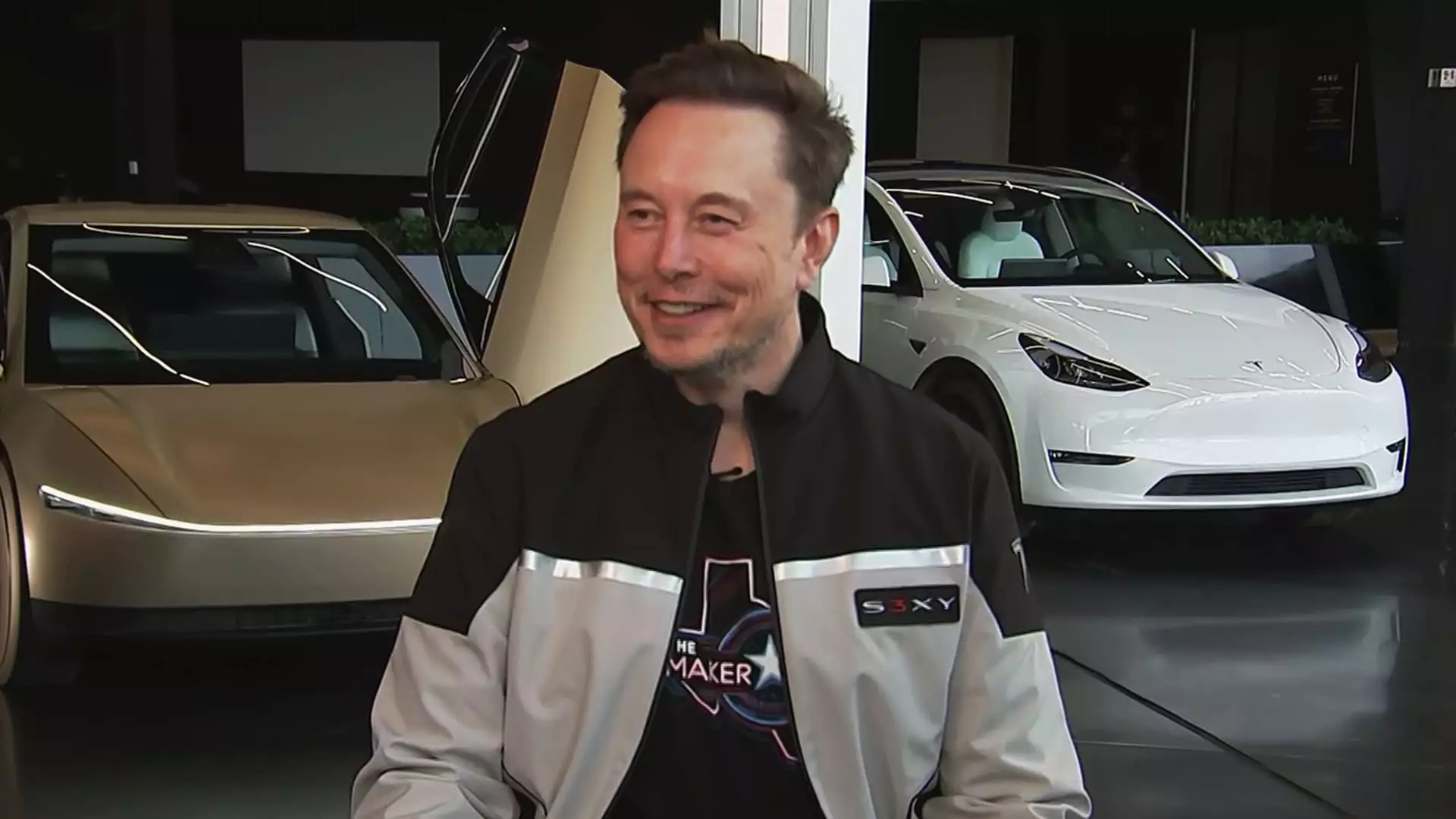Despite recent setbacks, particularly in Tesla’s sales across major markets like China and Europe, the stock has managed a notable rally in May. It is projected to experience an increase of over 20%, which raises eyebrows against the backdrop of a stark reality: sales performance has been spiraling downward. This phenomenon appears paradoxical at best and invites scrutiny. Why are investors reacting positively when tangible metrics paint a dismal picture? Perhaps it is the infectious optimism emanating from Elon Musk, a figure whose charisma seems to overshadow the company’s pressing issues.
Musk’s commitment to pivot his focus back to his businesses rather than engage in the political sphere has been interpreted positively by investors. However, how sustainable is this optimism? Given Tesla’s alarming 12% dip for the year, one has to wonder whether this rebound is genuine or merely a temporary blip on the radar. In an era when transparency and accountability are demanded from corporate leaders, Musk’s ambiguous commitments may simply serve as a tactic to soothe investor anxiety rather than a genuine path forward.
Navigating a Stormy Sea: The Musk Effect on Tesla’s Sales
Musk’s tenure has always been punctuated by both audacious predictions and glaring inconsistencies. Recent reports illustrate how disastrous sales figures—half of last year’s European numbers and a striking 25% decline in China—contradict the investor enthusiasm. It is not just the numbers that irk; it’s the context surrounding them. Allegations of Musk’s substance use and unstable personal life raise concerns about his bandwidth to effectively lead Tesla during tumultuous times. Ultimately, it casts a shadow on the leadership that many fans blindly revere.
Furthermore, Musk’s conventional ties with far-right political movements make consumer confidence wane. Tesla is not just a car manufacturer; it’s a lifestyle brand for many, and its association with polarizing politics could have long-term repercussions. Companies have a responsibility not only to their shareholders but also to their consumers who invest their emotions in the brand. The question remains: can Tesla’s exceptional technological advancements outweigh the internal chaos and unfavorable external perceptions?
Investor Pressure: The Rise of Governance Demands
It’s illuminating to observe how institutional investors are calling out the board for Musk’s perceived lack of commitment to Tesla. Pension funds are not known for their belligerence; their firm stance demanding that Musk commits at least 40 hours a week to Tesla signals a growing discontent. As stakeholders demand accountability, it has become evident that a rift exists between the founder’s lofty ambitions and the pragmatic requirements of corporate governance.
While some may view this as corporate overreach, it’s essential to understand the gravity of the current landscape. Investor activism is rising, and it can no longer be ignored. The inability to meet consumer expectations and the drop in production efficiency could spell disaster if not addressed. Accepting this newfound scrutiny may inappropriately showcase Musk not as a visionary but as a distraction in his own right.
Technological Innovations vs. Stagnation of Promise
Tesla’s attempts to pivot toward ambitious technologies, such as autonomous vehicles and AI-focused initiatives, have to be more than just buzzwords; they need tangible results. Analysts have vehemently pointed out how Tesla has ceded ground in autonomous ride-hailing to competitors like Waymo, which boasts over 10 million paid driverless trips. Musk’s perpetual promises regarding a comprehensive robotaxi service have been dragging for years, which begs the question: will Tesla ever deliver?
While innovation remains the heart of Tesla’s identity, reality suggests a stagnation of promised capabilities in the face of fierce competition. One cannot overlook that while Tesla has a relative advantage in the domestic auto market, this protection may not be as fortified against the impending storms of global competition and regulatory pressures.
In a climate where technological advancement should translate to market growth, Tesla seems caught in a web of unfulfilled potential and existential risk. In the emerging tech landscape, it will require more than just a glorified name to remain relevant. Tesla is in dire need of not only visionary leadership but also measurable outcomes that can reassure a skeptical audience, both within and outside of its corporate structure.

